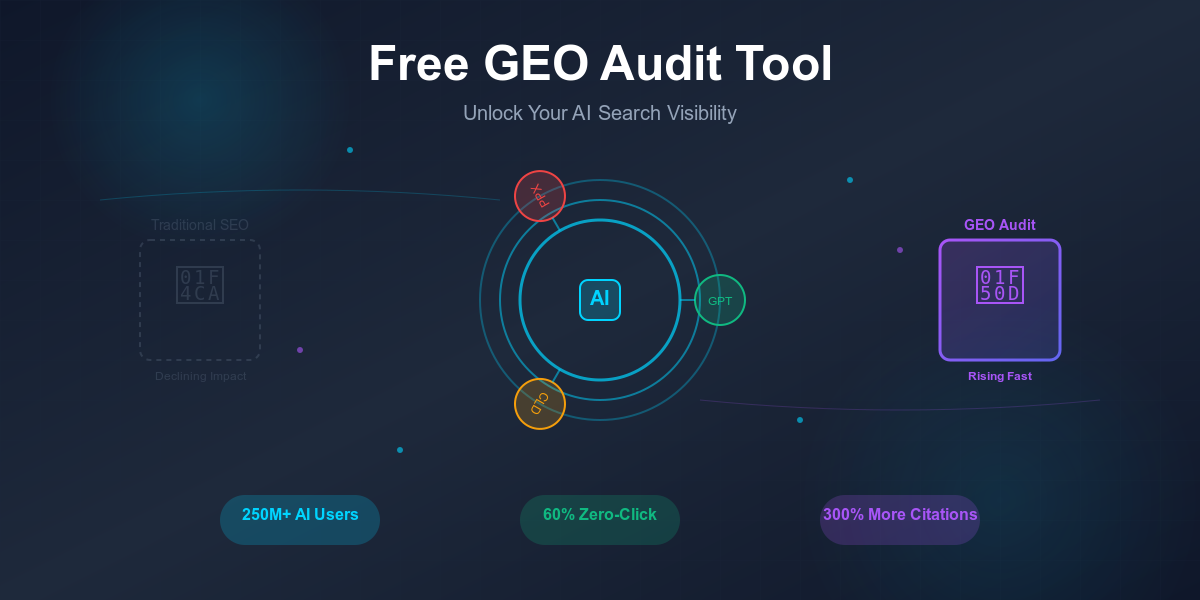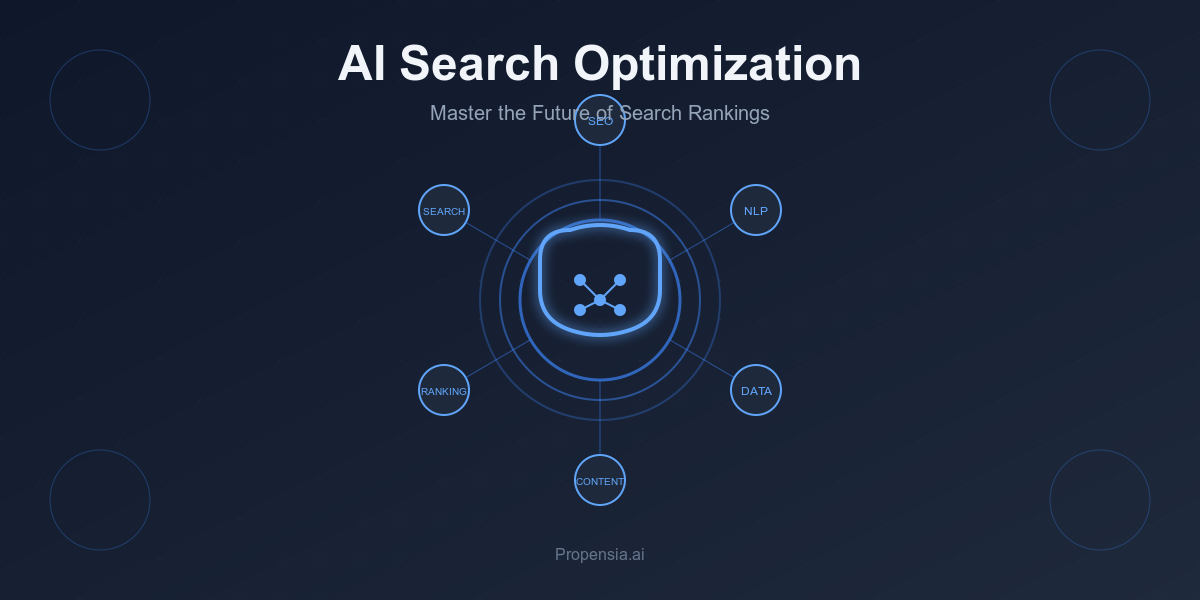The Top Generative Engine Optimization (GEO) Tools in 2025
Generative AI is reshaping how people discover information. Traditional SEO has dominated search strategies for the past two decades, but it’s no longer the only game in town. The next frontier is Generative Engine Optimization—or GEO.
AI platforms like ChatGPT, Claude, Perplexity, and Google’s AI Overviews are becoming the first stop for consumers and professionals alike. Yet most brands have no idea whether they’re even visible in these channels, let alone how to improve their standing.
This post breaks down the top GEO tools available today, what each one brings to the table, and how companies can take action to stay ahead of this seismic shift in search behavior.
What is GEO (Generative Engine Optimization)?
GEO is the practice of optimizing your brand, content, and web presence to be cited in AI-generated search results. This includes platforms such as:
ChatGPT (via Bing or GPT-4o Browse)
Claude by Anthropic
Perplexity.ai
Google’s AI Overviews
Unlike traditional SEO, which focuses on keywords, backlinks, and crawlability, GEO requires different inputs: structured data, entity modeling, content authority, and LLM-aware architecture.
If your business is not being cited by AI, it’s missing out on a growing share of intent-driven search traffic.
What to Look for in a GEO Tool
When evaluating GEO platforms, here are five key capabilities to prioritize:
Citation Visibility: Can the platform show if and where your brand appears in AI-generated responses?
LLM Ranking Monitoring: Does it track your placement and performance across generative platforms?
Schema and Metadata Optimization: Does it help ensure that AI models can interpret and classify your content correctly?
Competitive Benchmarking: Can you see how your domain compares to competitors in LLM results?
Actionable Recommendations: Does the tool provide clear next steps to improve visibility?
Top GEO Tools Compared (Narrative Format)
1. Propensia.ai
Propensia tracks brand visibility across ChatGPT, Claude, and Perplexity. It includes actionable schema recommendations with ready-to-implement JSON-LD code, built-in competitor audits, and predictive insights like traffic forecasts and LLM alerts. Price: Mid-tier, with Startup to Enterprise plans available.
2. BrightEdge
A well-established SEO tool that has recently introduced limited GEO functionality, focused mostly on Google AI Overviews. It offers strong traditional SEO optimization and competitive analysis but lacks AI-native predictive insights. Price: High, geared toward large enterprise teams.
3. AlsoAsked
Designed for mapping related questions and topic trees, AlsoAsked is useful for early-stage content ideation but does not support LLM visibility tracking, structured data optimization, or competitive GEO analysis. Price: Low.
4. Jasper Reports
Best known as an AI content generator, Jasper offers limited GEO tools. Users can manually test ChatGPT responses, but there is no visibility tracking, schema optimization, or competitor benchmarking built in. Price: Low, content-first focus.
5. NeuronWriter
NeuronWriter offers SEO optimization based on keyword input but does not include LLM-specific ranking analysis. It includes some schema support, but it’s not tailored for generative engines. Price: Low.
The Market Opportunity Behind GEO
Search is undergoing its largest transformation since the rise of mobile. AI-powered results are starting to capture meaningful traffic share, especially for informational and research-based queries.
Recent studies suggest that:
LLM chatbots are already handling an estimated 5 to 10 percent of global search volume
Platforms like Perplexity.ai and ChatGPT’s Browse feature are seeing rapid user adoption, particularly in tech, health, and finance
Google’s AI Overviews now show up in over 50 percent of informational queries
Generative AI search tools are growing at 40%+ CAGR, outpacing traditional SEO and PPC growth rates
In short, buyers are no longer just “Googling it.” They’re asking AI for answers—and expecting complete, citation-backed responses.
Why GEO Matters Now
Generative engines don’t work like traditional search. They reward structured, authoritative, well-linked content. They also factor in schema markup, source reputation, and content clarity in a very different way than Google’s classic algorithm.
GEO tools help surface where your brand stands and what’s influencing your presence (or absence) in AI search results.
Most importantly, they give you an edge while the field is still relatively open. As LLMs refine their sources and reinforce rankings over time, early visibility compounds.
Final Thought
There is a generational shift happening in how people discover, learn, and buy. And GEO is the foundation of this new discovery layer.
Just as SEO defined the digital marketing playbook of the 2010s, GEO will define who wins in the AI-driven 2030s.
The companies that invest early in generative search visibility will not only outperform in traffic and awareness but will own mindshare across the AI landscape.
If you're not tracking your GEO presence yet, now is the time to start.

